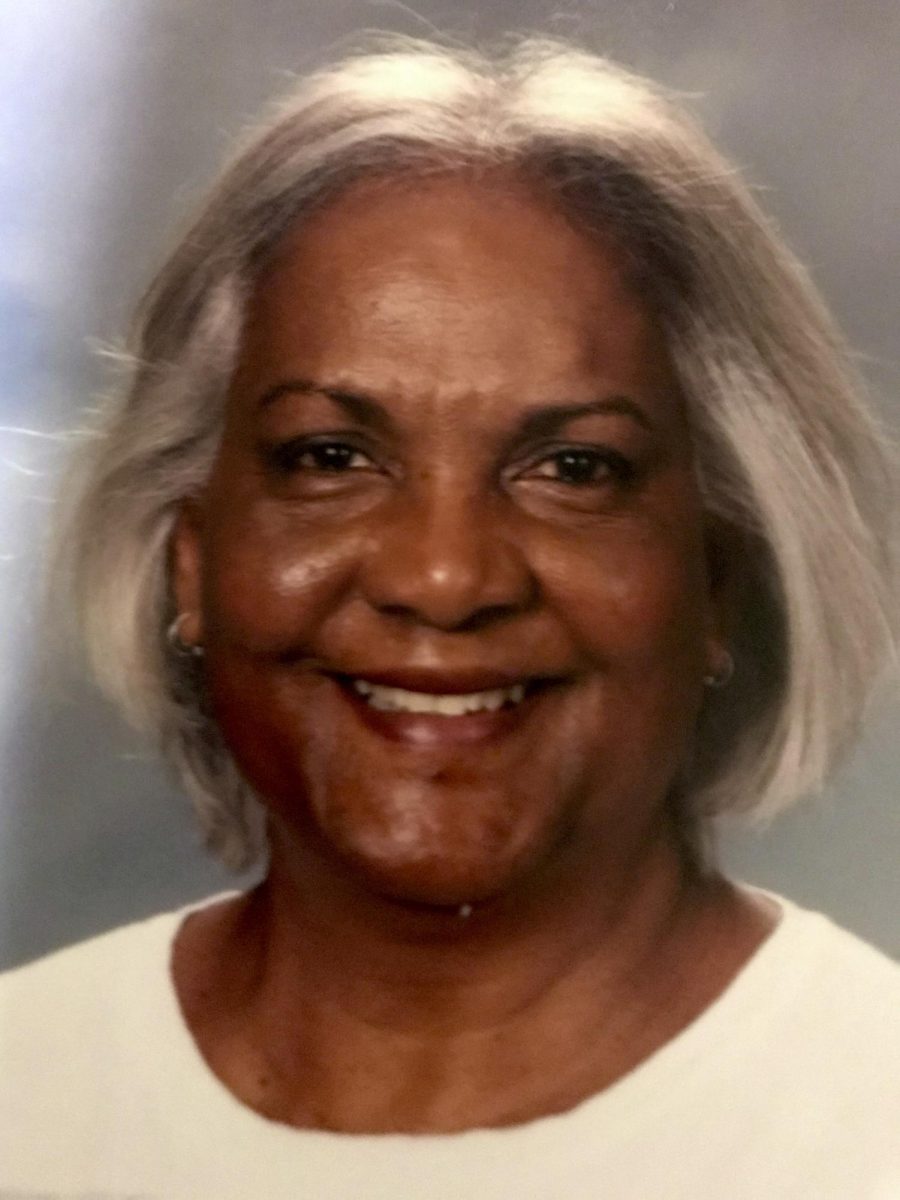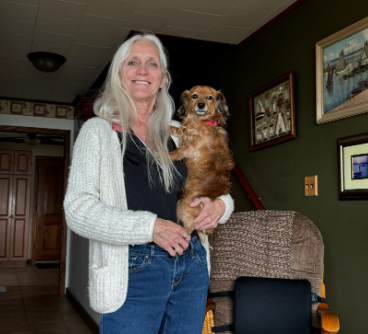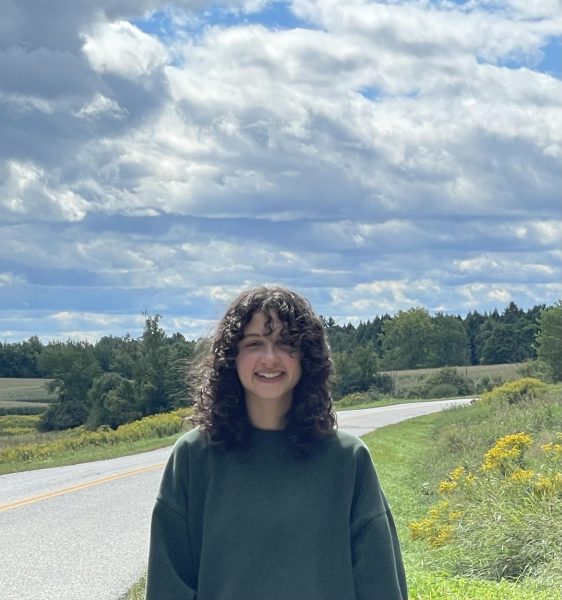In a classroom, Penelope Gratton sits at a table, surrounded by robin-egg blue walls. This table is worn by the many students that she has taught over the years. Though she prefers sandals, she wears sneakers as the weather turns colder. Slate gray with black and blue accents her ivory white soles shine bright. From the sandy beaches of Trinidad and Tobago to the dense forests and snowy winters of Vermont, a day in these shoes would provide a unique human experience filled to the brim with stories and culture. Penelope Gratton is a staff member at Bellows Free Academy, St. Albans. Prior to working at BFA, she had been a teacher in Trinidad and Tobago for twenty-three years. Born and raised there, Penelope never intended to move to the United States.
Now, after twenty years in Vermont, she details the differences in culture she experienced compared to Trinidad and Tobago. Growing up in a “Rainbow Country,” that contains a population from a multitude of ethnic backgrounds, Penelope’s experience with a variety of cultures has shaped who she is as an individual. She identifies as multicultural, as her grandparents originally traveled to the island from India and Scotland.
She moved to the United States when she married a Vermonter. It was one of the most difficult decisions she ever faced, as she picked up her entire life and headed to a country full of unknowns. This decision took her five years to make, because, to her, Trinidad and Tobago is her home. Coming from a multitude of different backgrounds, the definition of “home” for her has become blurred as she stated, “I still think of Trinidad and Tobago as my home. I always say I am going home but sometimes I think of America as home as well, because it has been twenty-three years I’ve been here, and it is becoming home.”
Teaching is the only job that Penelope has ever had. When reflecting on who she is as a person, she views herself as a teacher. Going to school in a convent in the Caribbean, teachers have the biggest influence on her life. After the death of her mother as a teenager, her teachers acted as maternal influences. This allowed Penelope to possess a positive school experience where she felt supported and safe. She also worked with younger children as a mentor while she was a student. After receiving encouragement from the school’s principal, she was determined to go to college as a teacher. As she grew older, she was able to recognize the positive impact that these figures had on her life, leading her to pursue a career in education. She wished other people knew her immense love for teaching. She loves interacting with people, especially kids, and seeing their eagerness to learn. Their enthusiasm is what drives her to teach others. She believes that working with children builds a legacy for her, as she helps mold future adults to be the most authentic version of themselves.
Penelope has found that the biggest difference between Vermont schools and schools in Trinidad and Tobago is the importance of education to children. On the island, education is considered one of the most important things someone can achieve in their life as it determines their position in society. However, she notices that in the United States, education is less valued as there are many avenues to success. The difference in culture has caused Penelope to notice a contrast in behavior toward teachers and staff in each country. In Trinidad and Tobago, respect for teachers is highly valued. While in Vermont, she has witnessed some children using profanity and an underappreciation of their education. She finds that this attitude to learning needs improvement.
When Penelope came to Vermont, she was amazed by the kindness of Vermonters and the strong sense of community within the state. She has observed strangers going out of their way to assist her and people in need. She was especially touched by the unity of women in Vermont. They made her feel comfortable and “part of something,” despite being new to the area. This sense of acceptance and warmth also transferred into her work life, and she felt welcomed by her coworkers. She has found that amongst all the schools she has worked at, BFA has the most caring environment in terms of staff. She believes that staff are constantly finding new ways to motivate and express genuine care for the children. She stated, “We strive to do the best that we can.” Penelope believes that a strong community arises from a united and involved spirit. She sees involvement at BFA when donations are made to the local food shelf, Ada’s closet, and the shoe drive.
In the future, Penelope looks forward to traveling. She specifically wants to reconnect with her culture in India and Scotland. As she faces each day, she reminds herself to take deep breaths. She often finds herself going on walks and looking at positive quotes posted on her wall. Growing up Hindu, she finds comfort in the Om sign as it symbolizes the sound that created the world and the breath that is taken to center oneself. Reflecting on her life experiences, she states that if she could speak with her younger self, she would encourage her to be more confident. However, as she grew older, she was able to find a sense of self. She believes if her younger self had been more confident, it would have prevented her from feeling stressed. Her concluding message for the students and staff at Bellows Free Academy is to be confident and to trust yourself.
Her story floats about the room, making the blue walls more vibrant. Her hard work and determination are visible in the grain of the table before her. With each stride, she carries this experience with her. Her slate-grey sneakers bear the weight of a lifetime of laughs, accomplishments, and so much more.








